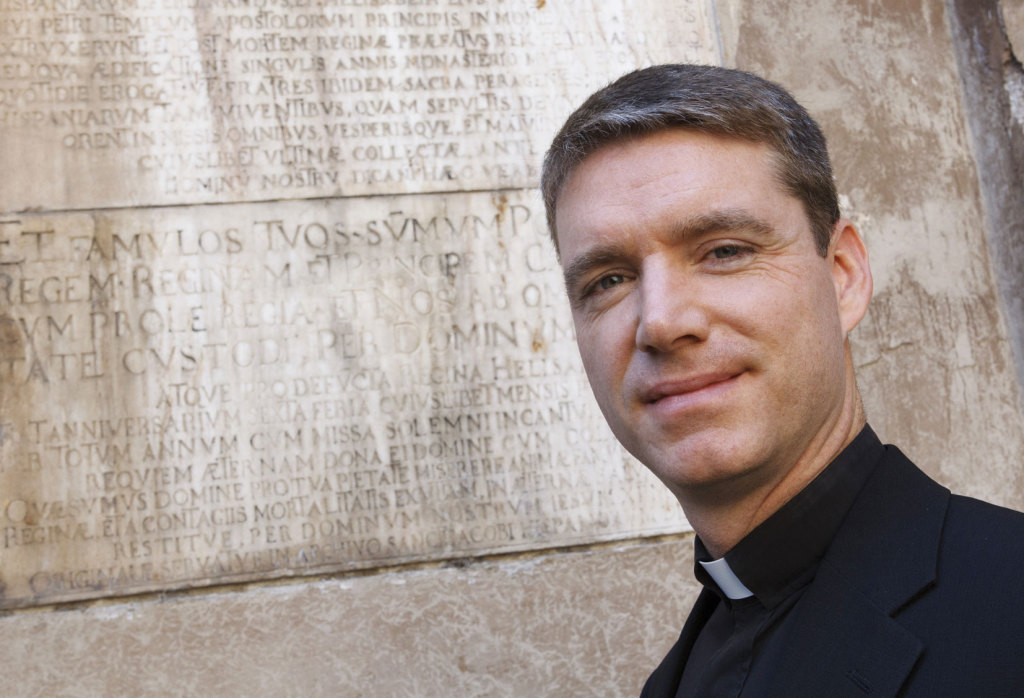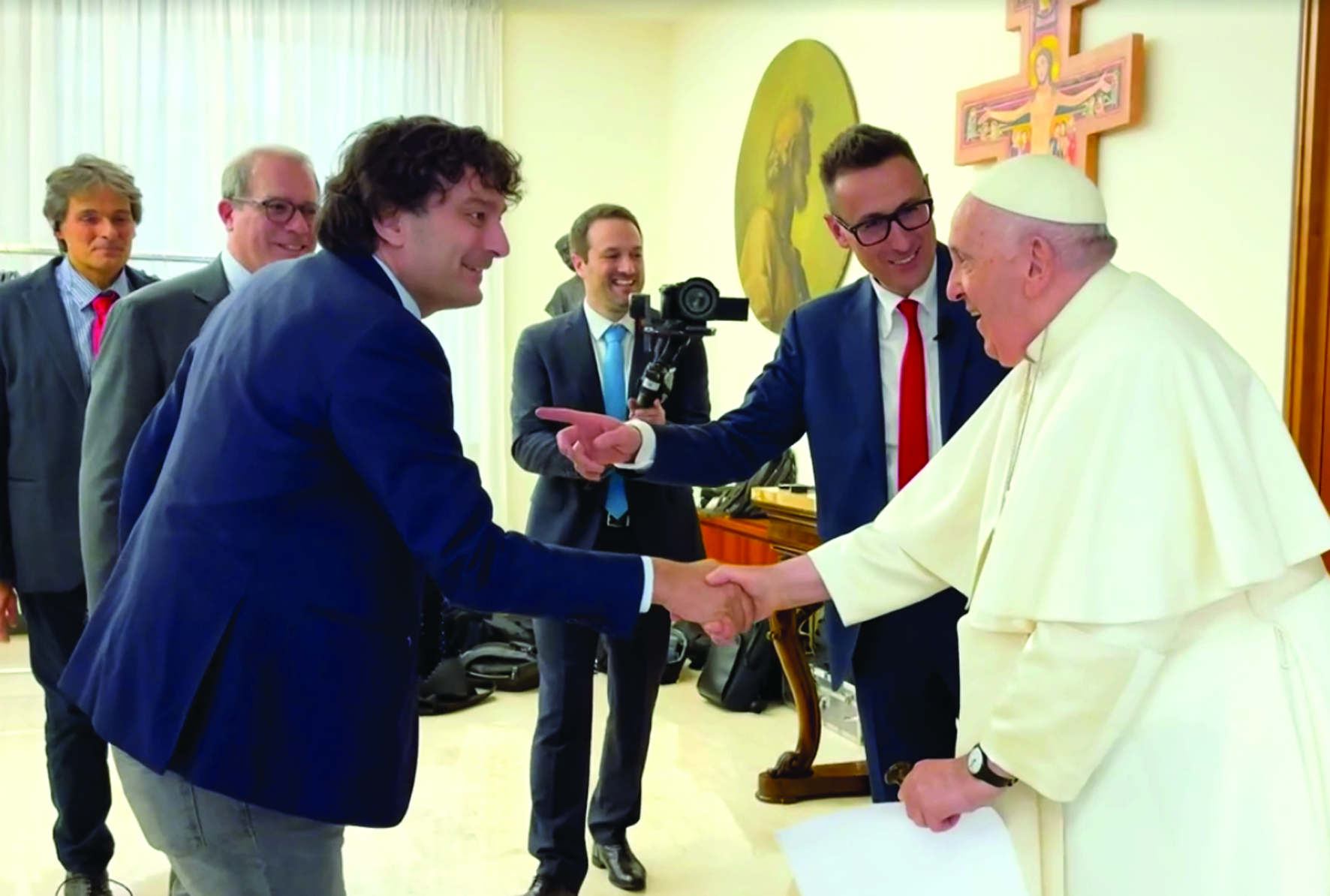By Mauro Pianta
Who is the best at Latin? “Pope Benedict speaks it smoothly and perfectly.” What about Pope Francis? “It’s not true he doesn’t like it; on the contrary, he knows it very well and also makes corrections, but he doesn’t speak it much.” If he says so, then it must be true. That is because Fr. Daniel Gallagher, 45, from Michigan in the US, is the man responsible for writing the Pope’s tweets in the language of Cicero. In the Vatican Secretariat of State he also coordinates six other priests in the Office of Latin Letters, the only office in the world where employees speak to each other in Latin. This is where documents are written and translated into Latin, as the priest says in an interview with Famiglia Cristiana.

U.S. Father Daniel Gallagher is pictured in Rome. Father Gallagher is a Latin expert who works in the Vatican Secretariat of State.
Try telling them Latin is a dead language. Fr. Gallagher — who has produced a Latin edition of Jeff Kinney’s best-selling children’s book Diary of a Wimpy Kid (millions of copies have been sold throughout the world) which will be presented in the Italian city of Bologna next week — points out: “It would be dead if we didn’t exist and if the Catholic Church did not exist.” “Our teachers got us used to speaking and thinking in Latin, drawing words, rules and structures from the vast treasure of classic and Christian texts, and when we couldn’t find them, then we could invent them,” he explains. He adds that a language needs “humanitas” and insists it is not true that Latin is a “holy language,” as in “unchanging”: “It is holy because the people spoke it, not because God dropped it down from the sky in a box. It is we who made it holy over the centuries.” According to the priest, this was a mistake. “And you know why? Because the Church is nobody’s; it is not Barnabas’, it is not Peter’s, and Latin represents the essence of universality. Latin is no one’s mother tongue.”
His concern is to keep it alive, even as it is used more and more sparingly in the Church. There are only 5,000 people in the world who speak it fluently. And they are not all priests. There are only about 200 priests and just a handful of cardinals who speak it fluently.
Even Benedict XVI, who is the best Latin speaker, made a mistake when he announced his resignation, a mistake that is still hotly disputed, with some claiming that his resignation and hence Francis’ election are therefore invalid. Gallagher smiles and explains: “He made a mistake when using the dative ‘declaro me ministerio…commissum rinuntiare’; he meant to say ‘commisso,’ not a serious mistake and one anyone could make.”
The Latin version of Pope Francis’ Twitter page has more followers than the Arabic, Polish and German ones, with 335,000 followers. And it is close to beating French as well. Gallagher admits that it may seem a bit snobbish to some, but then he turns serious: “We have learned that many Latin teachers in schools around the world use them for didactic reasons. Forming a phrase with 140 characters is a useful exercise. For us too.” Actually, more than an exercise, it is a challenge, because “first you have to decide on the syntax and the linguistic structure you’re going to use.” A passionate Fr. Gallagher adds: “Latin is not all the same, and we can use Cicero’s Latin or Virgil’s Latin, to Plautus’ or Terence’s, a Latin which is more suitable for short phrases or a more legalistic form. For tweets we tend to use Terence as inspiration. Sometimes we steal ideas from Martial. His epigrams made for very efficient tweets back in his day.”
When periphrasis crops up (and this is a daily challenge with Pope Francis), they don’t give up: “One morning we get the phrase ‘There is no such thing as low-cost Christianity.’ That’s a tough one. We came up with ‘Nulla pretii parvi cristiana reperitur religio,’ where ‘reperitur’ means ‘to imagine,’ so, ‘One cannot in any way imagine Christianity as low-cost.’” Soon they will have to tackle more of Francis’ neologisms like “mafiarsi” (to become like the Mafia), “giocattolizzare la religione” (to turn religion into a toy) and a “corruption that stinks,” “spuzza” (Italian informal for “stinks”). Good luck with that!






Facebook Comments